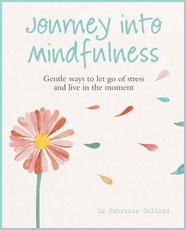The importance of having meaning in your life
"Let me also mention the famous centenarians of Okinawa, Japan, who live on the 'island of long life'. Their longevity is at least partially due to practising prayer and meditation and holding each moment as something valuable in their awareness. They simply enjoy being alive. And so the circle that starts with the simple joy of the adventure of life in childhood closes also with that same possibility. There need not be a greater purpose than this.
"I would also like to mention two people who deeply influenced the world by being living examples of mindfulness and loving kindness, ambassadors for peace and reconciliation. Thich Nhat Hanh and the Dalai Lama, who are responsible for inspiring generations, both had to leave their homelands (Vietnam and Tibet, respectively) in order to continue their work. But by closing this door, another one opened for them, and they achieved amazing things by spreading a message that is thousands of years old.
"Thich Nhat Hanh (1926 — ) created the Order of Interbeing in 1966, and established a beautiful retreat centre called Plum Village near Bordeaux, France. He heads a monastic and lay group, teaching mindfulness trainings. He still travels the world, writes books — and smiles. Meanwhile, Tenzin Gyatso, His Holiness the 14th Dalai Lama (1935 — ), the youngest of them all, perhaps needs no introduction, but just a few words from him: 'My message is Love!' So what do all these people have in common? What is the common denominator that kept them 'using it rather than losing it'?
"They had meaning in their life and an innate wish to actualize their purpose. Frankl says in his book The Doctor and the Soul: 'This will-to-meaning is the most human phenomenon of all, which we do not seem to share with any other being on earth.' Moment-to-moment real living — tasting life, not just staying alive, but savouring any opportunity life offers us — seems to make life worth living for a hundred years or more.
"There is a lovely book by Father Anselm Grun, the Benedictine monk, entitled The Art of Growing Older. A particular metaphor held in a story within it touched me deeply, which I would like to share with you. Ageing can be compared to the four seasons. Spring symbolizes childhood and youth. Summer then shines brightly as an independent adult, who can, if s/he chooses, create a life full of adventure. Autumn, on the other hand, creates new colours and smells in nature, when the sun is shining less harshly and rather more kindly. This is the time for harvesting and reaping, but also for trying new things, now that one may have fewer responsibilities, such as bringing up children or making a career. Winter has its own beauty. There is peace, quiet and an invitation to slow down one's pace, yet it is filled with possibilities — building snowmen outside or sitting in front of an open fire inside, telling stories or simply 'being alive'."
